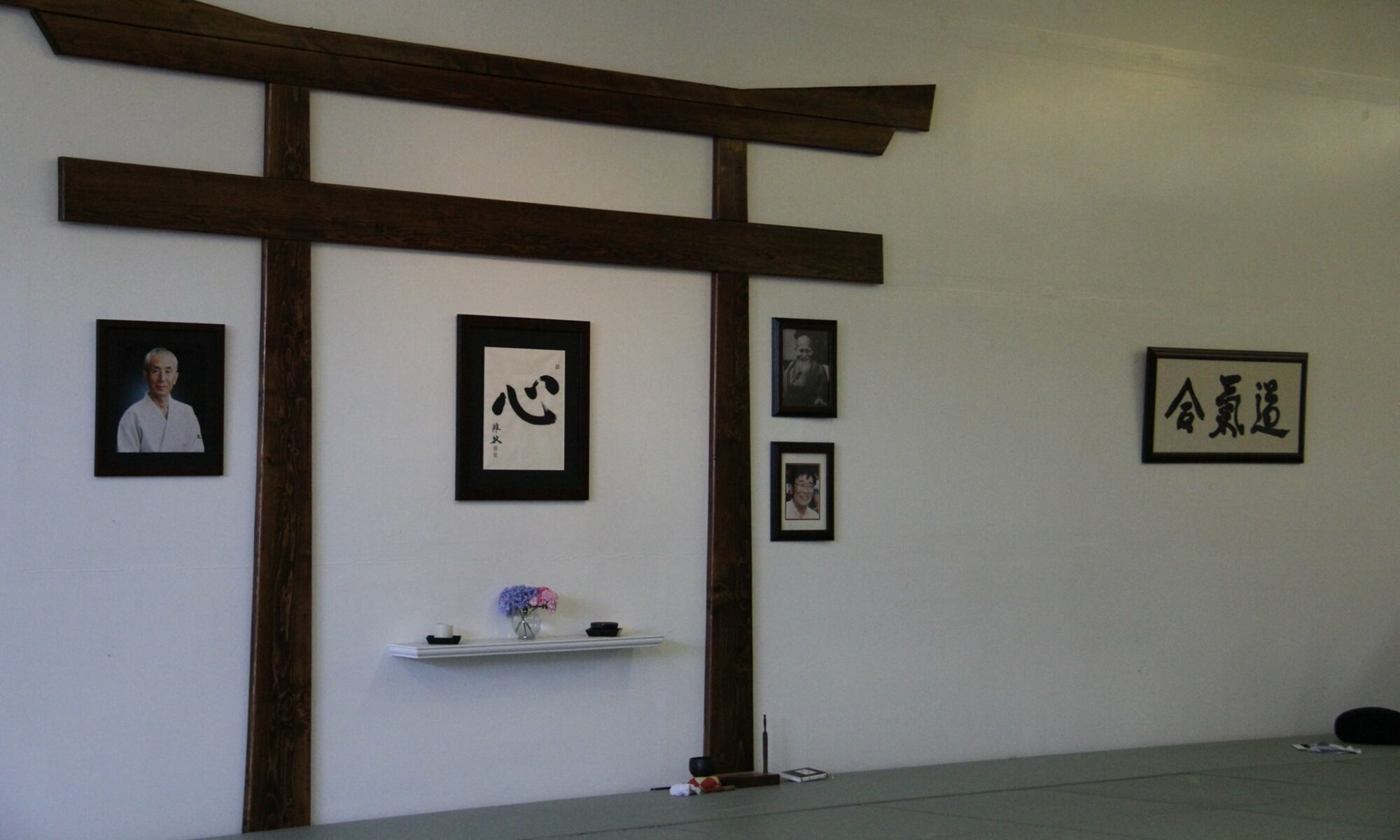We come to our dojo to train so that we’re better able to apply the principles of aikido in our daily lives.
Fear is a fascinating aspect of being human. We all experience fear from one time to the next, we are all mentally and emotionally wired to react to fear quickly using several deeply ingrained strategies (fight, flight, or freeze), and we are all predisposed to accept fear as ‘real.’ However, fear is not tangible, it is not quantifiable, it is mostly a thought. Fear is also deeply connected to our egos, designed to protect us from discomfort and suffering. Training in Aikido helps us relate to fear in healthier and more productive ways. Our training also helps us better know our egos and gives us the skills to continually file our egos back down.
When we experience fear, it is an emotional experience. It is also an opportunity to make some choices about how we want to present in that situation. Through our Aikido training, we learn to more quickly find our centers, relax, and extend our energy into the situation. The alternative is to this approach is to think about it and consider what could happen and begin to take measures to protect ourselves from the threat by holding our breaths, tensing our bodies, and contracting our energy toward ourselves. Although seductive, this approach closes us to the experience, lowers our responsiveness, and limits our creativity.
Through the thousands of punches and grabs directed at our bodies, through the thousands of falls and rolls that we take to avoid injury at the last second of an attack, and through the practice of following the energy of a threat, we become more capable of accepting fear and working with it more effectively. These are physical threats that we practice with in the dojo and as our practice is to unify our mind, body, and sprit, we should also take time to reflect on how the Aikido response to fear can be applied to threats that aren’t physical. Because regardless of the source of fear much of the response needs to address our fundamental human conditioning to ‘protect ourselves’ rather than blend with the energy of the experience.
By Nate Weed

